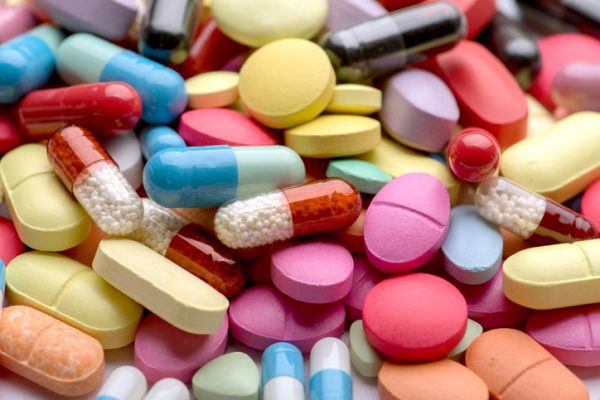
The Blue Cross Blue Shield Association and 18 of its state insurance companies banded together to reduce the cost of generic medications. The group committed $55 million to a broader initiative by Civica Rx, a nonprofit formed two years ago by a group of health systems and philanthropies to develop generics that are frequently prescribed in hospitals. The initial goal was to lower the cost of 14 medications and reduce drug shortages.
The Blue Cross Blue Shield insurers will create their own subsidiary of Civica Rx, focused primarily on generic drugs prescribed outside of hospitals. The funds will be used to buy abbreviated new drug applications for certain generics, which Civica and its manufacturing partners will then develop.

With the Rise of AI, What IP Disputes in Healthcare Are Likely to Emerge?
Munck Wilson Mandala Partner Greg Howison shared his perspective on some of the legal ramifications around AI, IP, connected devices and the data they generate, in response to emailed questions.
The Blue Cross Blue Shield Association (BCBSA) and insurers anticipate the first generics will be available by early 2022.
“We believe everyone should have access to health care, no matter who they are or where they live,” BCBSA CEO Scott Serota said in a news release. “Through this partnership, we will push toward the vital objective of providing greater access to much-needed medications. As BCBS companies and Civica embark on this important work, we hope others will join us to achieve the change Americans want to see in the health care system.”
Maureen Sullivan, chief strategy and innovation officer for the Blue Cross Blue Shield Association, said Blue Shield of California CEO Paul Markovitch first began looking into the idea.
“He was intrigued whether this model that they had started with hospitals could be brought to the outpatient side,” Sullivan said in a phone interview.
Accomplishing that for outpatient visits would be a little more complex than on the hospital side, Sullivan said. The Blue Cross Blue Shield Association spent the past year looking at how exactly that would work. Through price modeling, they determined that the BCBS insurers could save “hundreds of millions of dollars” for their members over time.
“There may be some drugs that they’re getting in the mail today that will be a whole lot cheaper,” Sullivan said.
The group is still working out which drugs they would develop first. Once they’re released to patients, BCBS insurers in each market will publish annual reports on how much was saved through the effort, Sullivan said.
They plan to push out information to patients about the cheaper generics, and in some cases, may offer a financial incentive.
“It might be an educational effort,” Sullivan said. “It might be pure substitution.”
No other insurers outside of the Blue Cross Blue Shield brand have joined Civica’s initiative, but Sullivan said partnership discussions are underway.
For its part, Civica Rx has managed to recruit more than 45 health systems to the effort, accounting for more than 1,200 hospitals. Earlier this month, the nonprofit struck a seven-year partnership with Thermo Fisher Scientific to develop and manufacture nine medications that have been in short supply. Civica is currently in the process of producing or shipping 18 different medications for use in hospitals.
“Civica is already bringing value — in quality, supply and price — to the inpatient hospital market and with BCBS will expand that mission to reach individuals and families buying generic prescriptions in hospitals and pharmacies,” Civica Board Chairman Dan Liljenquist said in a news release. “Combining Civica’s mission with the commitment BCBS companies show to their members places us in a position to make a significant impact on lowering drug costs.”
Civica Rx was created in response to rising prices for certain common generics, with recent examples including price hikes for tuberculosis drugs and anti-seizure medications. A 2018 study published in Health Affairs showed the percentage of generic drugs that at least doubled in price increased from 1 percent in 2007 to 4.39 percent in 2013.
The nonprofit’s original founding members include Catholic Health Initiatives, HCA Healthcare, Intermountain Healthcare, Mayo Clinic, Providence St. Joseph Health, SSM Health and Trinity Health. Three philanthropies each contributed $10 million to the effort in its beginning: the Laura and John Arnold Foundation, the Peterson Center on Healthcare and the Gary and Mary West Foundation.
Photo credit: grThirteen, Getty Images
This story has been updated with comments from Maureen Sullivan of the Blue Cross Blue Shield Association.














